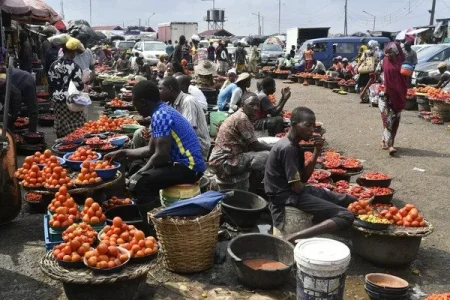
Nigeria's inflation rate reached 34.8% in December 2024, marking its fourth consecutive rise. The increase, driven by festive demand and food price hikes, reflects a 5.87% year-on-year rise. Food inflation surged to 39.8%, with regional disparities. Despite a slight slowdown in month-on-month inflation, the overall trend remains concerning.
Nigeria’s inflation rate has risen to 34.8% in December 2024, marking the fourth consecutive monthly increase. The National Bureau of Statistics (NBS) attributes this rise to a combination of factors, including heightened consumer demand during the festive period. This increase, although marginal, was higher than the 33.6% recorded in November.
The year-on-year inflation in December was 5.87% higher than the same period in 2023, which had recorded a rate of 28.92%. The month-on-month inflation rate, however, showed a slight slowdown, dropping from 2.64% in November to 2.44% in December.
Food inflation was particularly steep, reaching 39.8%, driven by the rising prices of staples like yam, rice, and fish. On a month-on-month basis, food inflation slowed slightly to 2.66% compared to November’s 2.98%. Regionally, Sokoto, Zamfara, and Edo experienced the highest food inflation, while Ogun, Rivers, and Kwara had the slowest increases.
The 12-month average for food inflation in 2024 stands at 39.12%, a sharp rise from 27.96% recorded in 2023. Despite a decrease in some food prices during the month, the overall inflationary trend is expected to continue as the country faces ongoing economic challenges.




